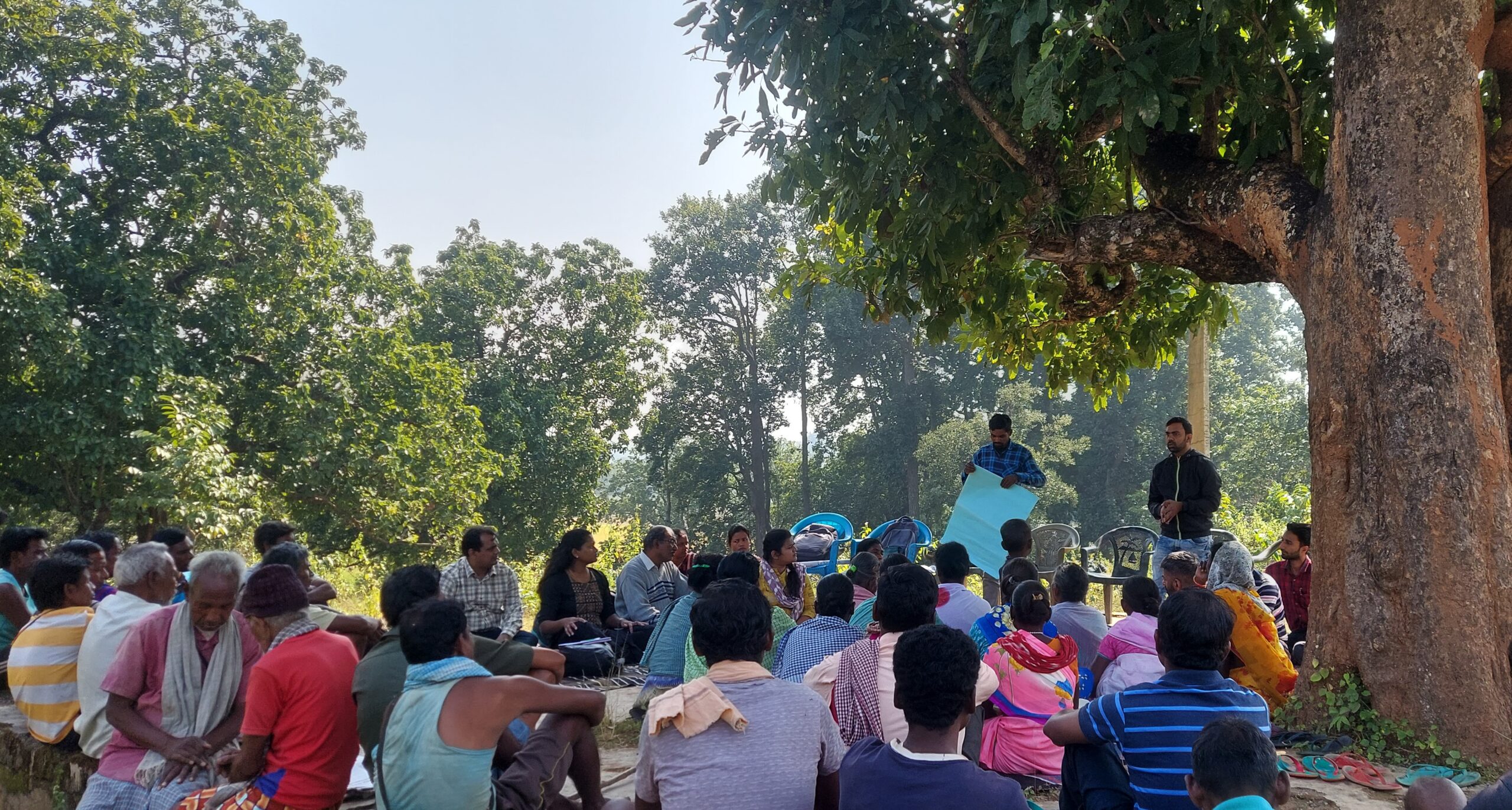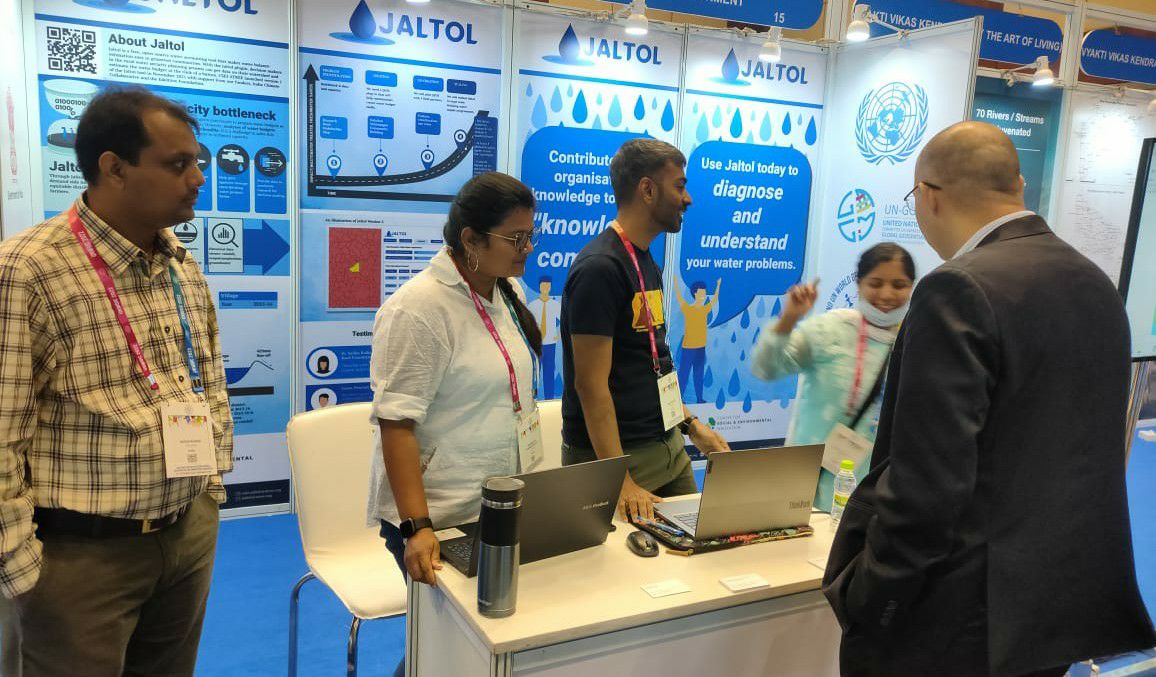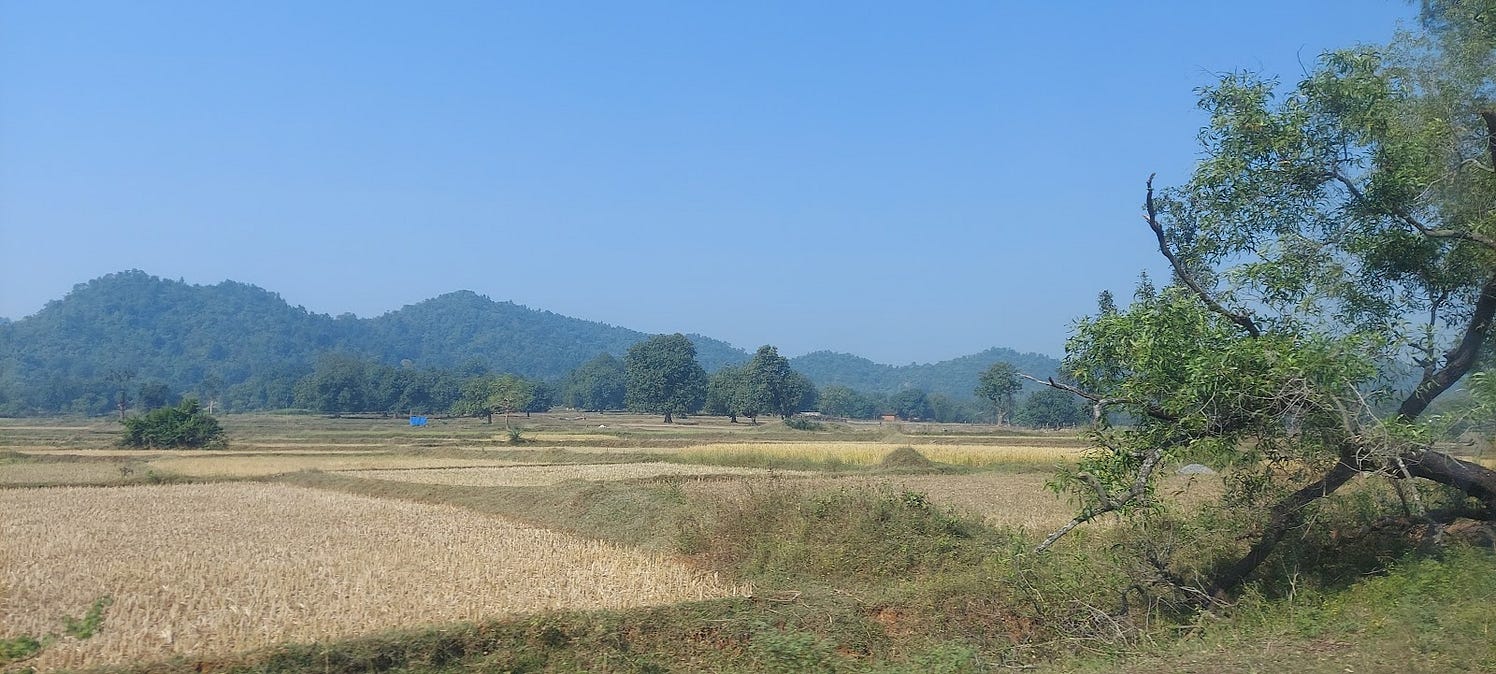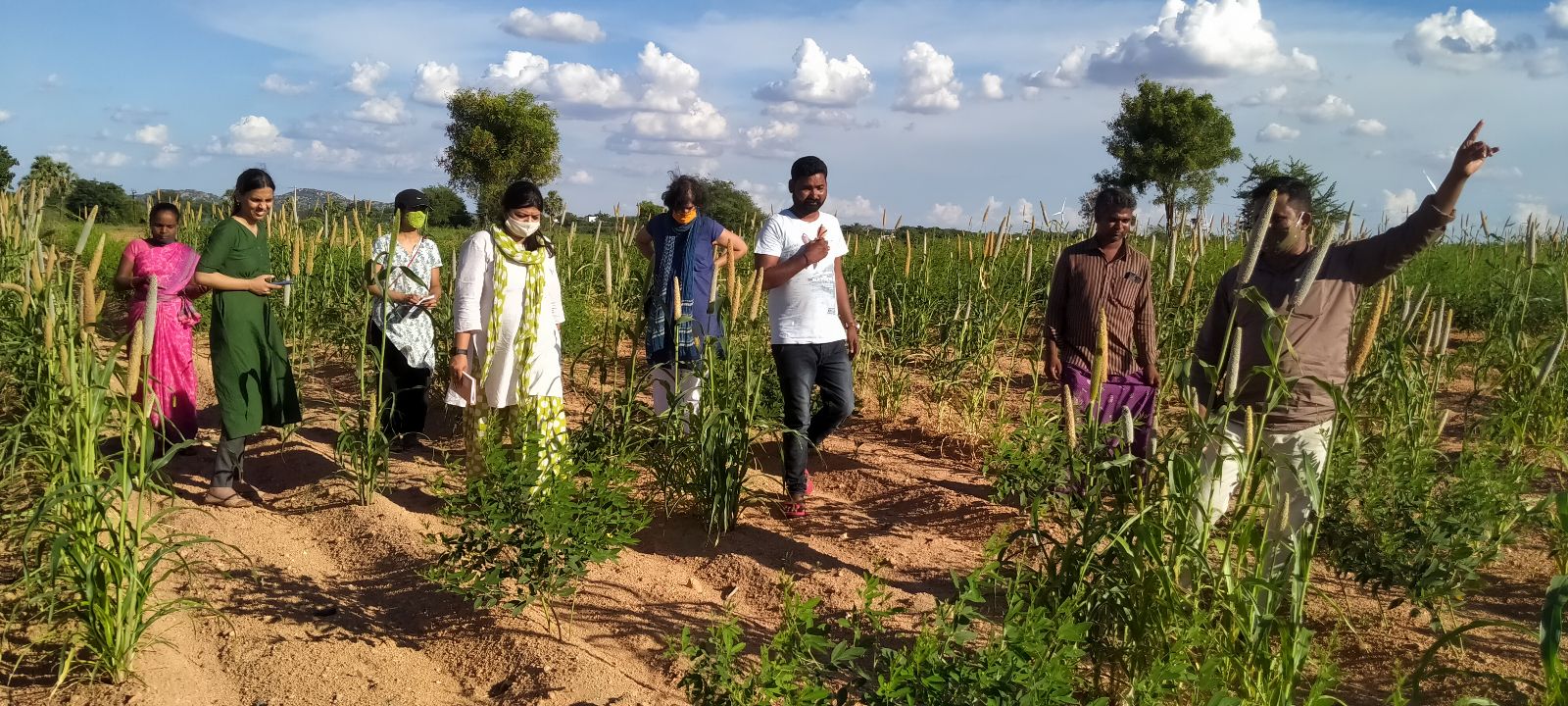Field Notes from Lohardaga: Easing How Jharkhand’s Grassroots Workers Access Knowledge
We are grateful to PRADAN (Professional Assistance for Development Action) for facilitating this visit.
Dibyendu Chaudhuri (Research and Advocacy at PRADAN) and Smita Kumar contributed to this blog.
In July 2023, we visited Lohardaga in Jharkhand to learn about the work being done by PRADAN, a grassroots organisation working to improve rural livelihoods. Our focus, under the Green Rural Livelihoods consortium, is on knowledge access and dissemination. This two-part blog series summarises how knowledge is shared in the sites we visited and what grassroots workers need to perform their jobs more effectively.
In Part 1 of this blog series, we explained who the different groups of people involved in the process are and how information passes from one to another. In this blog, we explain five key insights that stood out in the conversations we had with PRADAN’s field staff as well as Community Resource Persons (CRP), Community Service Providers (CSP) and Master Trainers (MT). We also reflect on how we build a platform that can address the issues they face.
Our five key insights:
1. Knowledge dissemination is not a one-way street.
There is a lot of cross learning in this community – enabled by MTs and CRPs that sit in on Self-Help Group meetings (every other week) and in Gram Sabhas (monthly). Thus, they hear directly from farmers regularly. They also learn from each other and from PRADAN’s field staff, while PRADAN also incorporates learnings and feedback from CRPs into their training material.
2. Training is only one part of a CRP/CSP/MT/Pradan field personnel’s job. They spend a significant amount of time and effort troubleshooting post training.
PRADAN staff trains CRPs or CSPs and MTs and regularly updates them with any new relevant knowledge, usually through WhatsApp. There are WhatsApp groups for Self Help Groups that focus on a specific subject (for example, one for ethnoveterinary needs) as well as for each village. CRPs and MTs answer questions that farmers post on these groups and are also available on call. They told us that they get at least five troubleshooting calls everyday from the villages they are responsible for.
Read | Can Playbooks Promote Green Rural Livelihoods? Insights From Conversations With CSOs
3. All CRPs and trainers rely solely on PRADAN’s knowledge resources and on their staff for problem solving.
PRADAN’s field personnel are available to CRPs and MTs round the clock. They also receive, on average, around 4-5 of these troubleshooting calls daily. They refer to notes from when they attended training sessions as well as additional training manuals or videos to address the questions they get asked.
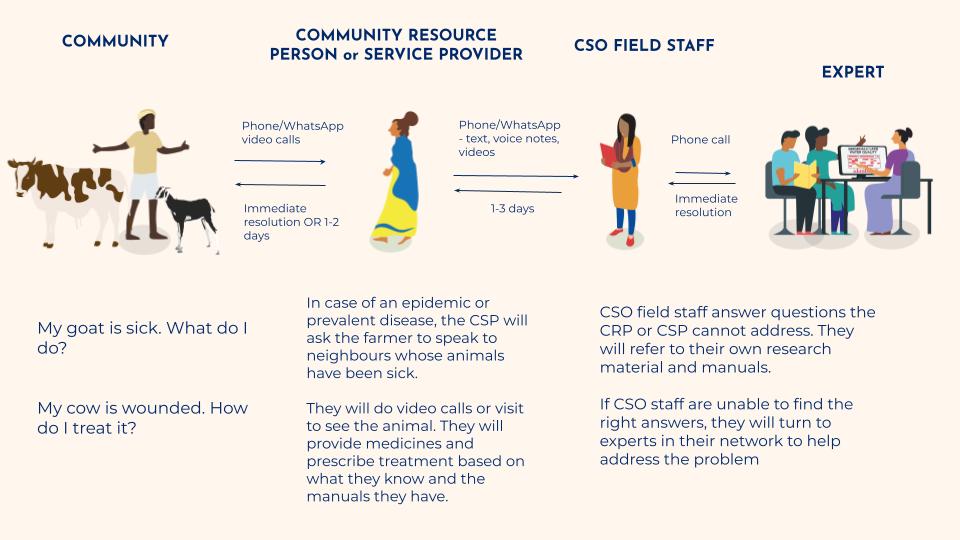
How PRADAN’s field staff and experts, and CRPs and CSPs address problems faced by the community.
CRPs and MTs rarely take the initiative to look beyond PRADAN’s personnel and resources for help. This is due to a lack of trust in the source of the information they could potentially find on the internet. Another cause is not knowing how to decide from the wealth of information online on the best practice for a certain intervention. They prefer interacting with people and are comfortable with audio and video calls as well as resources sent on Whatsapp messages in groups managed by PRADAN staff.
4. The community prefers Q&A interactions over referring to documented knowledge.
The emphasis on in-person interactions and consultation does not mean documented knowledge does not exist. PRADAN has made a number of toolkits and guidelines. However, since some of these documents are bulky, field staff don’t prefer sharing them in entirety with CRPs and MTs. Similarly, MTs and CRPs don’t usually leave behind any documents with farmers/GPs in the village. This is because, they said as per their experience, everybody prefers directly asking them questions post training instead of referring to documents. This could possibly be because people prefer to get answers from vetted and trusted sources rather than relying on what they or others inferred from a session.
Farmers prefer videos as well.
Those who cannot read and write can grasp visual content well – even videos in English are useful if it’s a demonstrative video as farmers can see the intervention. PRADAN staff can then explain the concept to CRPs so that they can discuss it with farmers in their preferred language after watching the video. While videos are preferred to written text, farmers still prefer getting answers from CRPs/MTs directly.
5. Field staff spend a majority of their time on the field. They want to make the process of addressing questions CRPs and MTs have more efficient.
Field staff need more time to innovate and think of creative solutions to problems they see on the field and that CRPs bring to them. They are open to trying new things and formats including digital ones (they are already sending out demo videos) to increase the reach of their CRPs. All field office staff at PRADAN’s Lohardaga office said that they prefer digital formats even if it’s just a PDF of a document because hard copies are difficult to carry around. They also said that soft copies are easy to forward to communities and trainers through WhatsApp.
Currently, knowledge material is stored in a Google Drive
Field staff members can access this in formats such as documents, presentations, videos and posters that are currently not well consolidated. It also sits in personal drives, emails and laptops of field staff members.
CRPs and MTs know of livelihood interventions that PRADAN documents. However, if there’s something new they want to experiment with for interventions, their only source is the internet through search engines like Google. But they don’t know what information to trust and which best practices would work for them. If they have a source for consolidated and verified knowledge manuals from PRADAN, this would be very useful.
PRADAN’s staff have requirements in terms of knowledge material, content and the platform.
The transfer of knowledge is currently intensive and hands-on. PRADAN’s field staff are core to this process and spend a lot of time troubleshooting for CRPs and MTs. We sat with PRADAN’s field staff to understand their needs better.
Material
- PRADAN staff told us that they want the material to be formats that are easy to update. Currently, they end up having duplications of the same resource material with minor changes.
- Their Google Drives are packed with reams of information that they said need to be consolidated better. This would improve Monitoring and Evaluation work on the field, enabling them to document the success of an intervention.
- Similarly, PRADAN also wants to capture how people’s behaviours have changed to narrow down on the impact of Behaviour Change Communication (BCC) workshops.
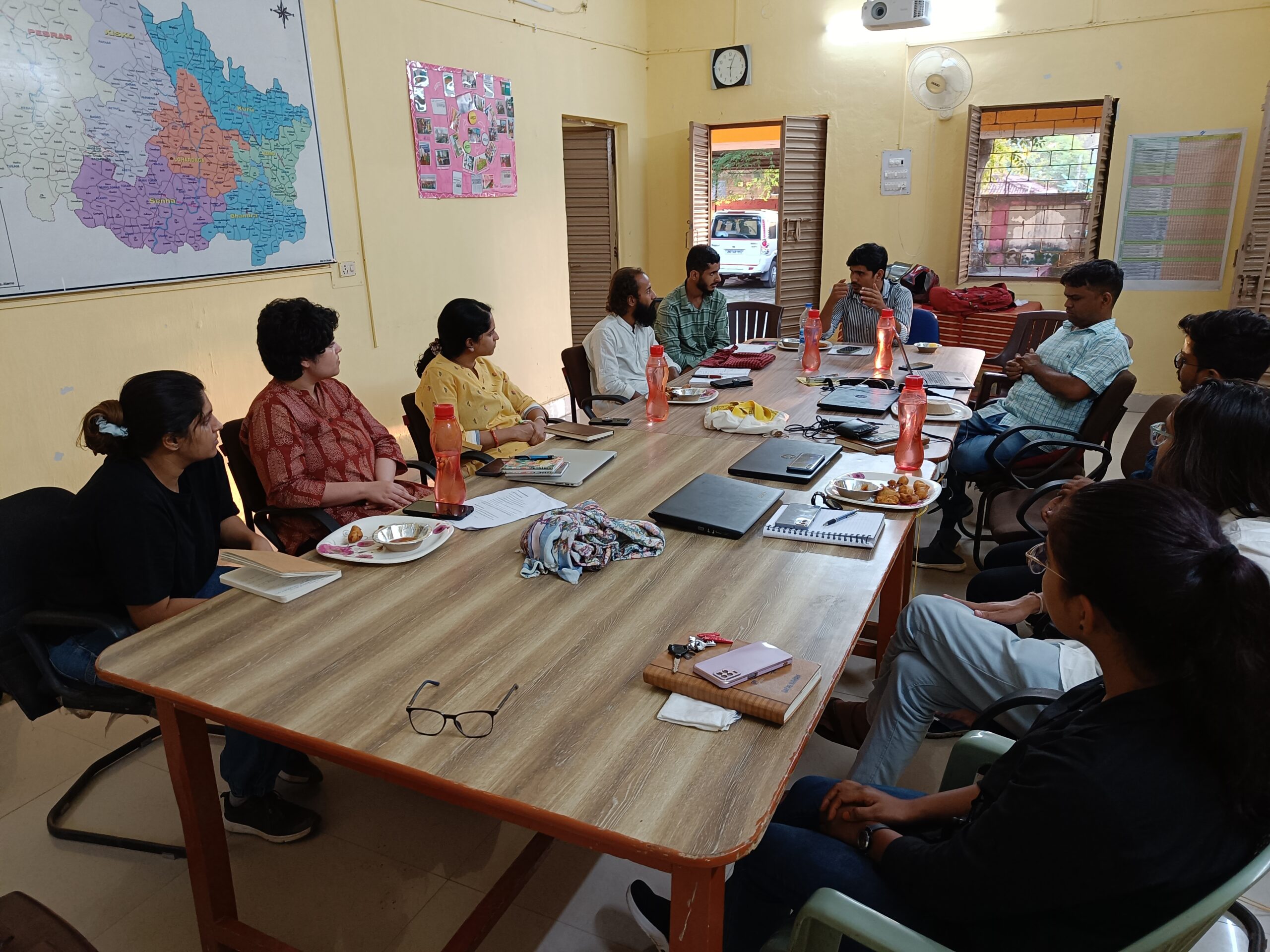
Grassroots organisation: At PRADAN’s Lohardaga office. WELL Labs researchers discuss with PRADAN’s field staff about how they store and access knowledge. Credit: Partik Kumar
Platform
- An ideal platform would make their current tasks more efficient by saving the time they spend navigating the Google Drive folder and reducing person-to-person dependency (numerous emails and calls asking for material).
- Since a lot of knowledge is recorded in large documents, they also expressed the need to have shorter summaries alongside the main document.
- A platform which makes diverse knowledge discoverable for more teams within PRADAN as well as other organisations working in the same sector, would be beneficial to learn from and cross-pollinate ideas. Currently they discover knowledge outside the organisation and individually reach out to exchange knowledge, visit another partner’s site and learn about their models.
- The platform must also have options to discover and serve content in the user’s preferred language. For example, one of the field team members was looking to understand gram sabha reforms in Kerala but they were not able to find documents in Hindi or English.
- The platform must be accessible online because, often times, the need to access and share knowledge occurs on the field.
Content
- The content must be easy to access and understand.
- Field staff need access to information that is credible, which means endorsed by a government agency, PRADAN themselves or another expert organisation. It should also be possible to distinguish resources depending on the level of credibility it has (based on whether it was vetted by PRADAN or whether it was attached to another known expert)
- Content should also be contextualised to the region. Staff members should be able to look for resources and equipment located near them and relevant to their geographical and cultural context.
As part of the Green Rural Livelihoods consortium, the objective is to develop a platform that would help communities on the ground carry out their work more easily and effectively. We will follow up this introductory blog series with updates on how we are partnering with another organisation to devise technological solutions such as bots to answer frequently-asked questions.
Throughout these process, we will engage with potential users to iteratively improve on potential solutions. It is critical that their needs and concerns are addressed, and that we work towards addressing actual gaps and improving CRPs’ access to knowledge.
Read | Restoring Landscapes and Improving Farmer Income, the People-Centric Way
If you would like to collaborate with us or know more about the Green Rural Livelihoods project, write to [email protected] or [email protected].
As part of the Green Rural Livelihoods (GRL) project, we are conducting a series of ‘clinics’ that cover a diverse range of topics. By bringing together experts who can ‘diagnose’ your problems and help find answers, we aim to create a platform for knowledge exchange
The clinics will cover millet farming, watershed management, natural farming, poultry farming, farmer producer organisations and self-help groups, women’s rural livelihoods and rainfed farming
To know more, fill up this form or write to [email protected].
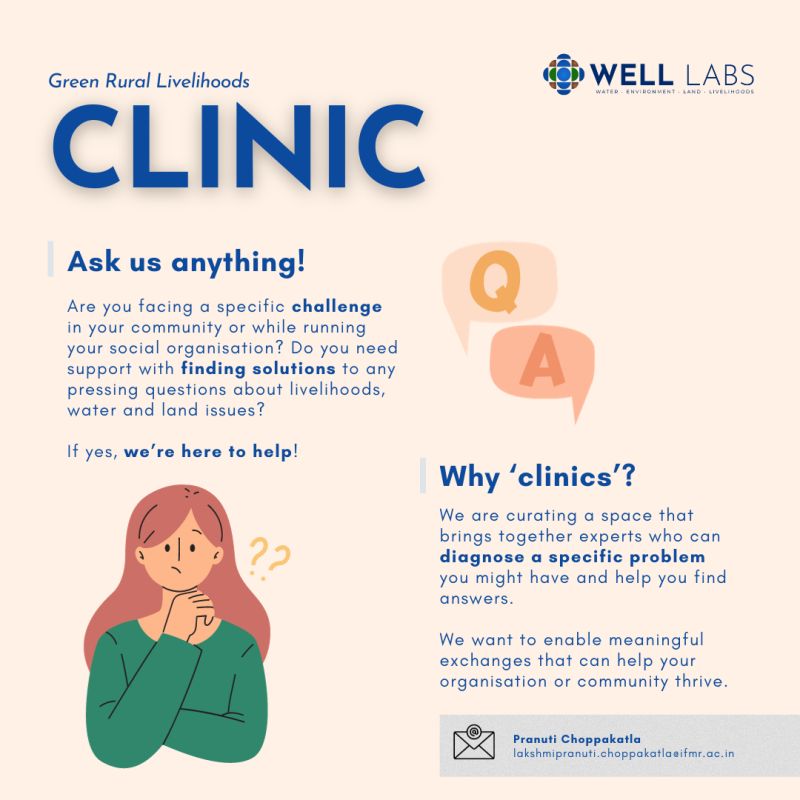
Edited by Kaavya Kumar
If you would like to collaborate with us outside this project, write to us. We would love to hear from you.
Follow us and stay updated about our work:


